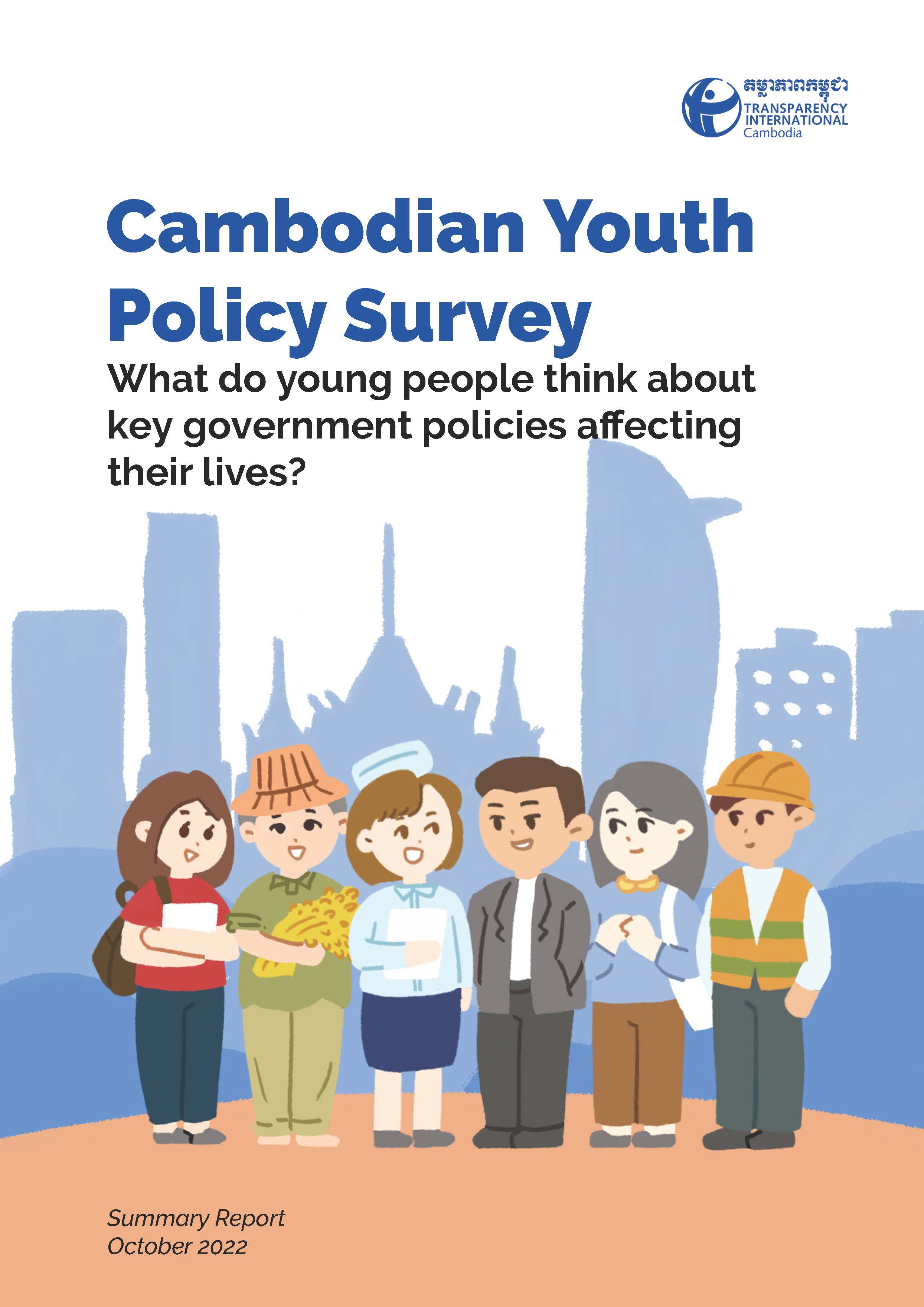
Cambodian Youth Policy Survey Report
Publication Year: 2022 / Sources: Transparency International Cambodiaការស្ទង់មតិនេះបានផ្តល់នូវការរកឃើញថ្មីៗអំពីកម្រិតនៃការចាប់អារម្មណ៍ និងចំណេះដឹងរបស់យុវជនទៅលើកិច្ចការរបស់រដ្ឋាភិបាល…
The survey offered insights into young people’s levels of interest and knowledge of government affairs, particularly key public policies, their needs and challenges in the areas of healthcare, education,…
Download: English | Khmer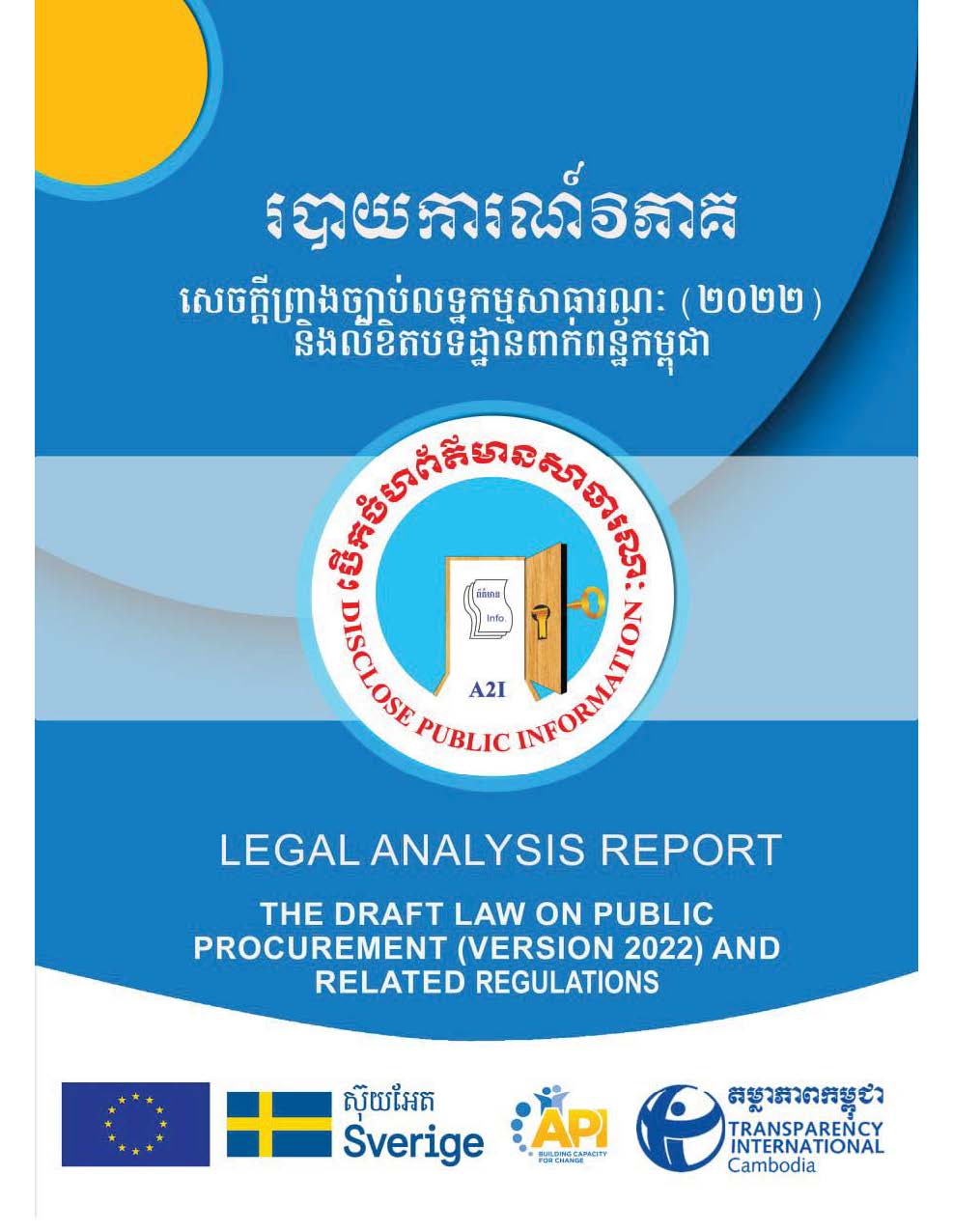
Legal Analysis Report The Draft Law on Public Procurement (version 2022) and Related Regulations
Publication Year: 2022 / Sources: Transparency International CambodiaExecutive Summary
This Report has been commissioned by Advocacy and Policy Institute (API) and Transparency
International Cambodia (TIC) to conduct a Review of Legal Framework for Public Procurement
Transparency and Its Enforcement in Cambodia. Having been chosen upon a competitive
bidding process, Sethalay Law Office has conducted a thorough desk review of the Cambodian
legal framework for Public Procurement.
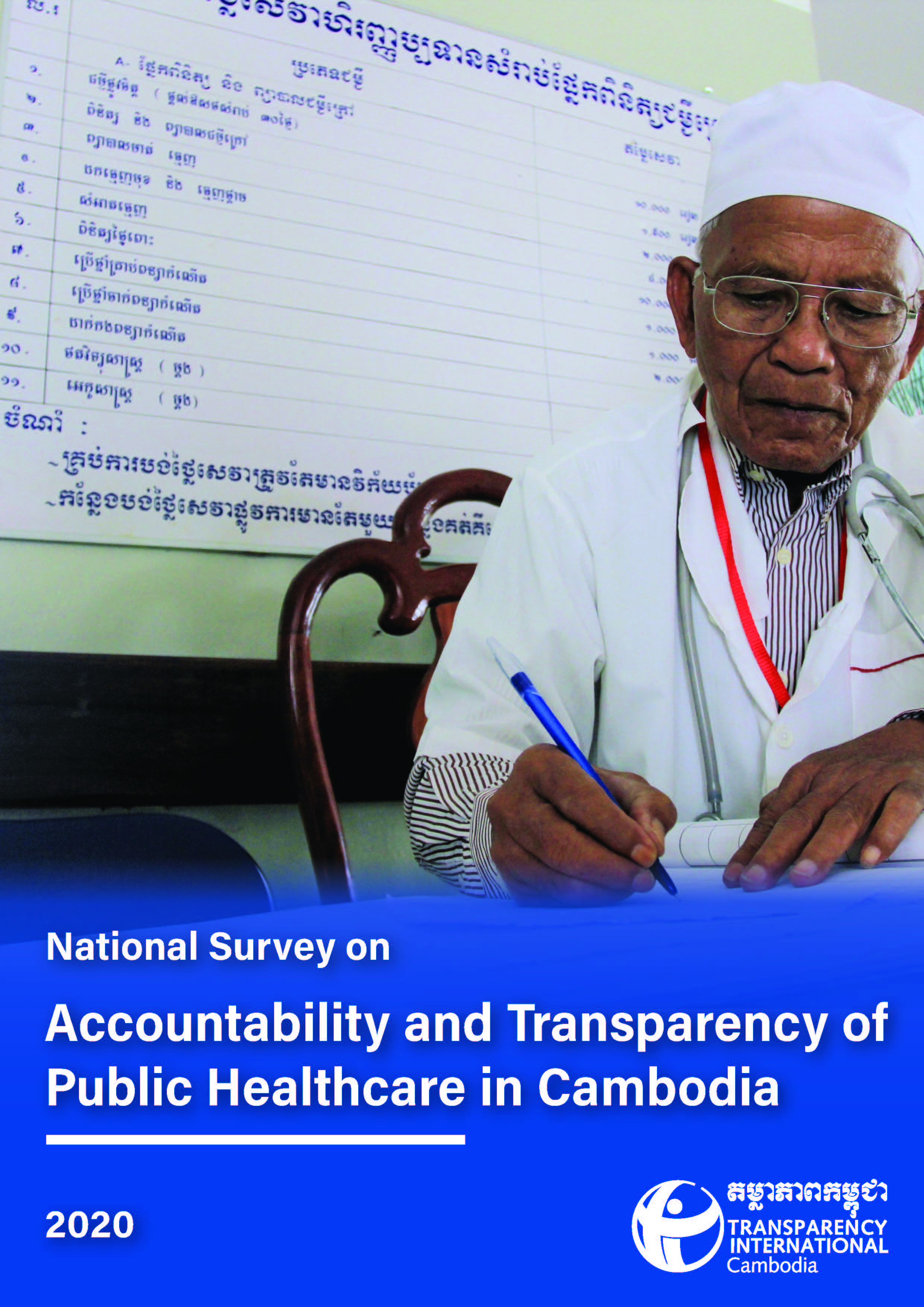
National Survey on Accountability and Transparency of Public Healthcare in Cambodia
Publication Year: 2020 / Sources: Transparency International CambodiaThis report presents the findings of a nationally representative survey seeking to understand and quantify citizens’ perceptions and attitudes toward transparency and accountability of public healthcare in Cambodia, as well as their awareness and experience in seeking the services in the country. This survey took place in October 2017, collecting responses from 1,596 individuals from 200 villages in 100 communes across all 25 provinces of Cambodia.
Download: English | Khmer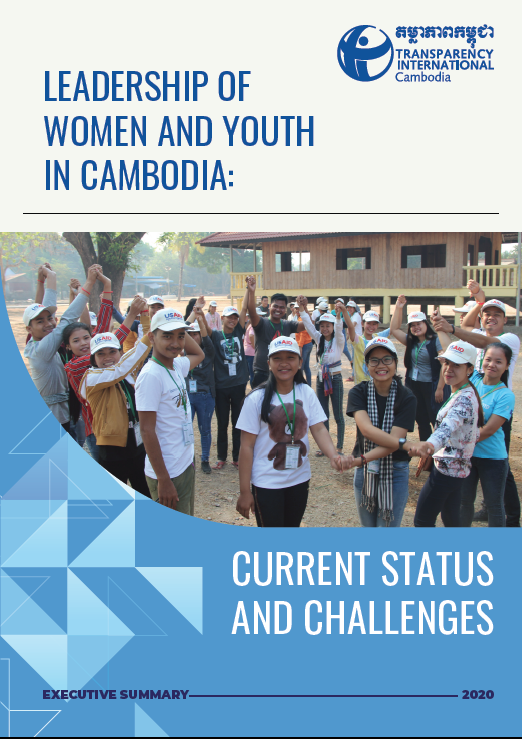
Summary report on Leadership of Women and Youth in Cambodia
Publication Year: 2020 / Sources: Transparency International CambodiaThe main objectives of the study were to:
(1) Document the recent trends in women’s and youth’s leadership in Cambodia,
(2) Identify the progress and challenges in creating an enabling environment for youth and women to effectively participate in the decision-making processes, and
(3) Create concrete recommendations for the Government, CSOs/networks, and academics (schools) to effectively promote youth and women in leadership positions for the improvement of the democratic system in Cambodia.

Human Development Report 2016
Publication Year: 2017 / Sources: UNDPThe 2016 Human Development Report is the latest in the series of global Human Development Reports published
by the United Nations Development Programme (UNDP) since 1990 as independent, analytically and empirically
grounded discussions of major development issues, trends and policies.
Additional resources related to the 2016 Human Development Report can be found online at http://hdr.undp.org,
including digital versions of the Report and translations of the overview in more than 20 languages, an interactive
web version of the Report, a set of background papers and think pieces commissioned for the Report, interactive
maps and databases of human development indicators, full explanations of the sources and methodologies used in
the Report’s composite indices, country profiles and other background materials as well as previous global, regional
and national Human Development Reports. The 2016 Report and the best of Human Development Report Office
content, including publications, data, HDI rankings and related information can also be accessed on Apple iOS and
Android smartphones via a new and easy to use mobile app.
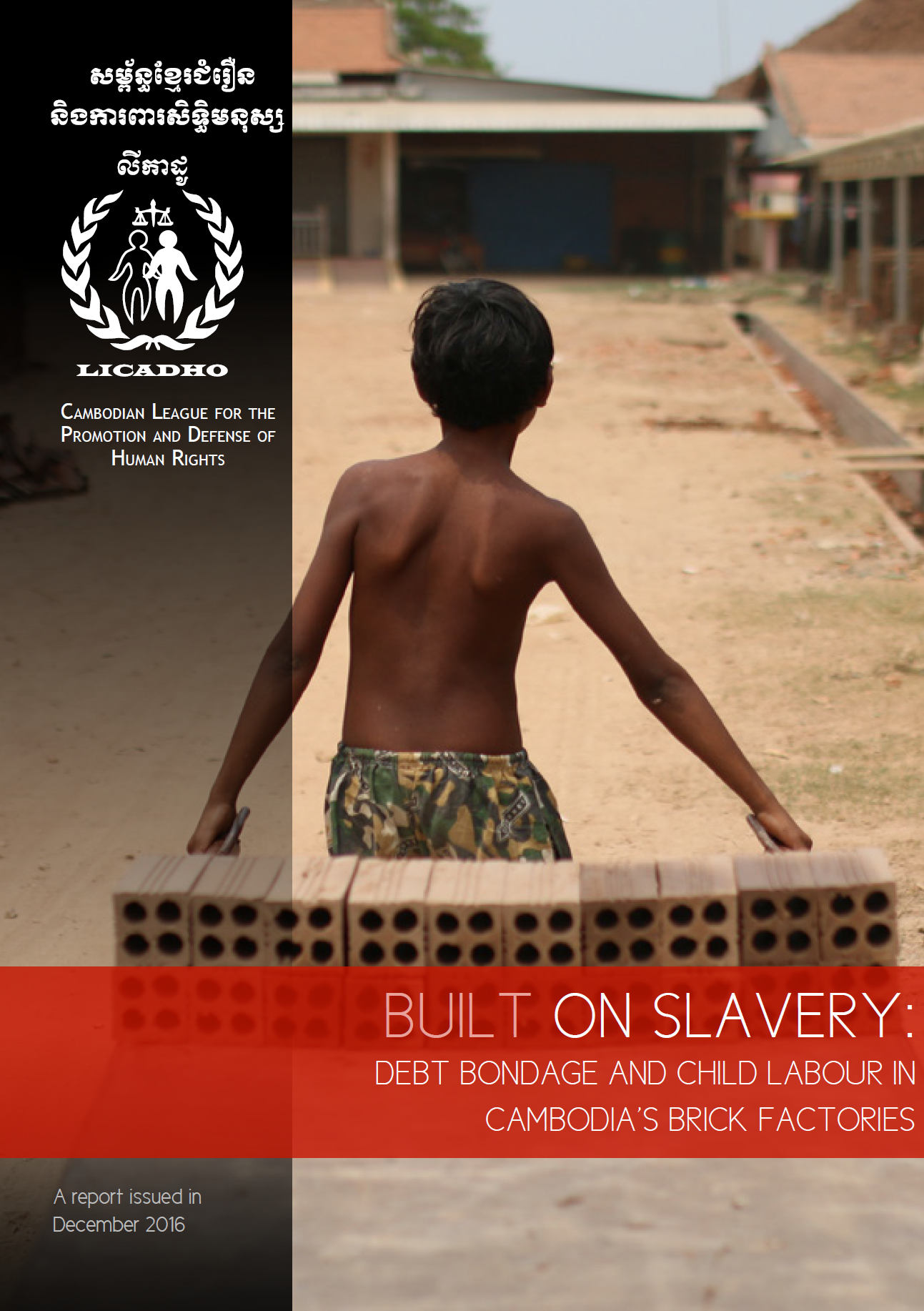
Built on Slavery: Debt Bondage and Child Labour in Cambodia’s Brick Factories
Publication Year: 2016 / Sources: Cambodian League for the Promotion and Defense of Human Rights (LICADHO)The interviews and group discussions covered a range of topics including details of the interviewees’ daily lives and their work; their financial situations and the amount of debt owed by them or their families; how they had come to brick factory work; employment practices; the use of child labour; access to education; and injuries caused by factory machinery.
Download: English | Khmer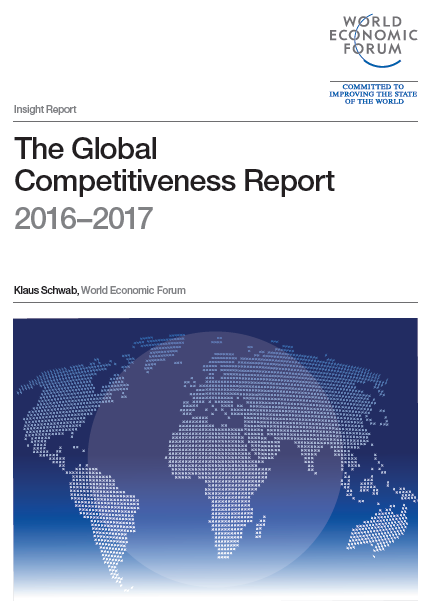
The Global Competitiveness Report 2016-2017
Publication Year: 2016 / Sources: Klaus Schwab, World Economic ForumCambodia ranks 89th, up one position from last year. Among Asian nations, it is the one that has posted the largest GCI score improvement—from 3.5 to 4.0—since 2007. Despite the positive trend, the challenges are many and significant. Cambodia ranks no better than 50th in any of the 12 pillars of the Index; in half of them it sits beyond the 100th mark. Of particular concern is its mediocre performance in three of the four areas that constitute the basic drivers of competitiveness: institutions (104th, up seven), infrastructure (106th, down five), and health and primary education (103rd, down 16). Moreover, Cambodia ranks 124th in higher education and training, its poorest performance in any pillar. It is estimated that secondary education enrollment is around 50 percent. With a median age of 23.8, Cambodia is home to one of the youngest populations in Asia. Ensuring access to quality of education for all should therefore be a policy priority.
Download: English | Khmer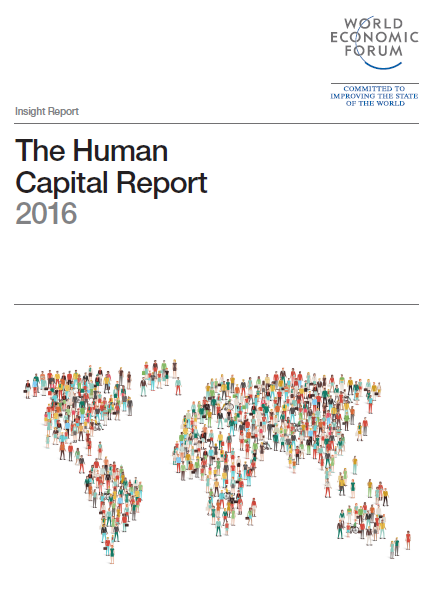
The Human Capital Report 2016
Publication Year: 2016 / Sources: World Economic ForumThe Human Capital Report aims to combine public international statistics, qualitative perception data and big data metrics to provide a comprehensive picture of the situation today as well as the opportunities for the future. The Human Capital Index quantifies how 130 countries are developing and deploying their human capital, and tracks progress over time. It takes a life-course approach to human capital, evaluating the levels of education, skills and employment available to people in five distinct age groups. In addition to the Index, the Report also explores skills in-depth through a unique partnership with LinkedIn and the emerging shape of the labour market on digital platforms, using data from Care.com, Didi Chuxing, Uber and Upwork.
Download: English | Khmer
Rule of Law Index 2015
Publication Year: 2015 / Sources: World Justice Project (WJP)The Rule of Law Index 2015 was prepared by The World Justice Project (WJP)’s research team. This research has measured on 8 factors: constraints on government powers, absence of corruption, open government, fundamental rights, order and security, regulatory enforcement, civil justice, and criminal justice. A ninth factor, informal justice, is measured but not included in aggregated scores and rankings. These factors are intended to reflect how people experience rule of law in everyday life. This WJP Rule of Law Index 2015 are derived from more than more than 100,000 household and expert surveys in 102 countries and jurisdictions. The report showed that Cambodia ranked 99 out of 102 countries and dead last in the East Asia and Pacific region.
Download: English | Khmer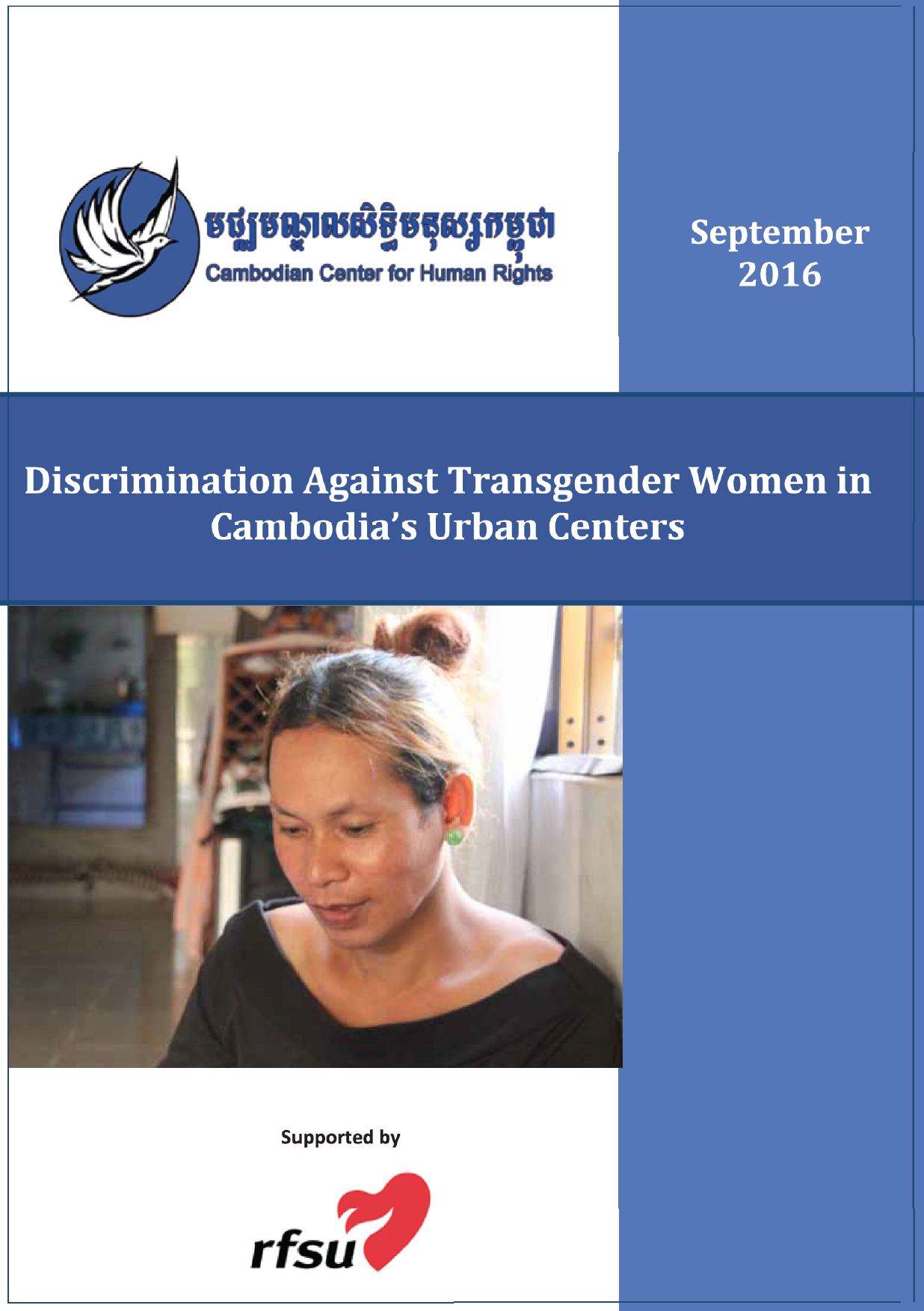
Discrimination Against Transgender Women in Cambodia’s Urban Centers
Publication Year: Sep 2016 / Sources: Cambodian Center for Human Rights (CCHR)This research report documents human rights issues faced by transgender women in Cambodia’s Urban centers, and recommends actions to secure their rights to equality, dignity, health and security.
Download: English | Khmer